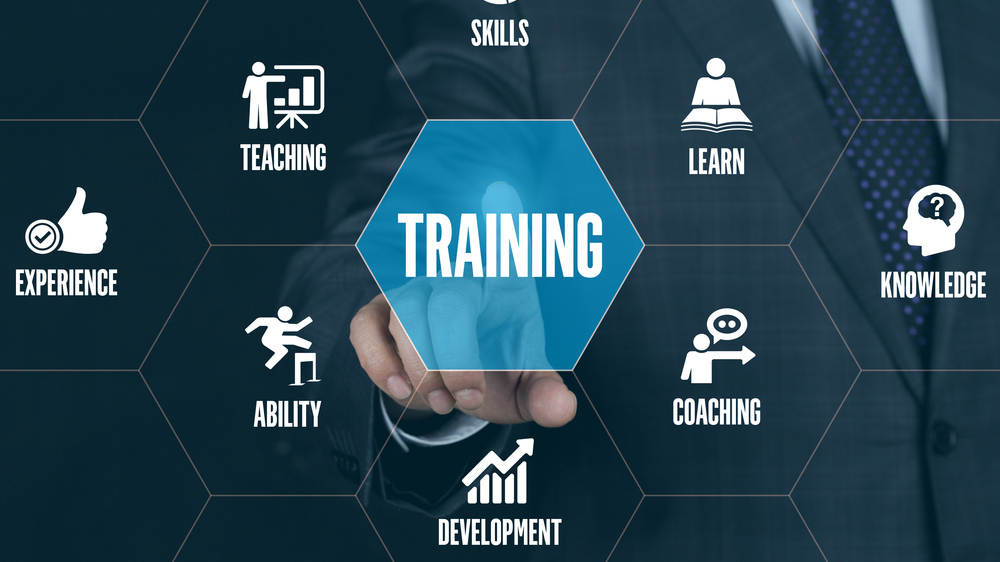Manual Testing Course in Bangalore
with
100% Placement Assistance
- Job oriented Training
- Expert Trainers with 15+ years Exp
- Interview Questions
Manual Testing Course in Bangalore - New Batch Details
| Trainer Name | Mr. Bhasker |
| Trainer Experience | 15+ Years |
| Next Batch Date | 22-02-2023 (8:00AM IST) |
| Training Modes: | Classroom Training, Online Training (Instructor Led) |
| Course Duration: | 2 Months |
| Call us at: | +91 87223 55666 |
| Email Us at: | dturtleacademy@gmail.com |
| Demo Class Details: | ENROLL FOR FREE DEMO CLASS |
Manual Testing Course in Bangalore - Curriculum
Testing is a critical phase of Software Development Life Cycle. Manual testing is the process in which the defects
are identified, isolated, subjected for justification and ensure that the product is defect-free, in-order to produce
quality product. However it requires the necessary knowledge such as about different types of manual testing,
software development life cycle. In this course you will learn everything that is required from a good manual
tester.
- To understand what is testing?
- To understand Software development model.
- To Understand Architectures ofsoftware development.
- To learn the features of Software development models.
- To learn major concepts of the testing methodologies.
- To know different approaches to Testing.
- To understand of the types of testing.
- To plan and create test plan
- To execute the test plan.
- To create and manage test cases and defect profiles.
- To build strategies to track testing processes in the bug tracking systems.
- To do document of the test report in the testing enclosure document.
- Basic Knowledge of Computer.
- Internet Connection.
- Beginners who want to start their career in Software Testing field.
- Already a tester: You can refresh all your testing basics and techniques and gear up for Certificationsin
Software Testing - Fresh Graduates: If you have passed out of college recently, and looking for a job in QA/Testing Industry,
then this course will definitely help you build skills required for your first job - Non-Programmers: If you are interested in IT, but hate programming or find it difficult, then Testing
allows you focus less on programming and more on analysisskills. - Non IT Professionals: If you are currently working in some other field, but interested in building a career in
IT, then this course will help you step into the IT field
In this module you learn about Importance of testing. Why Testers need industry, software
program/application/product: meets the business and technical requirements that guided its design and
development works as expected.
- What is testing?
- Importance of testing
- Roles and Responsibilities
- Principles of software testing
- What is Quality?
- How much testing is enough?
- Differences between Manual and Automation Testing.
In this module you learn about development procedure .SDLC stands for Software development life cycle. It is a
process that describes how to develop, design and maintain the software project ensuring that all the functional &
user requirement, goals and objective are met.
1. SDLC Phases
- Requirements Phase.
- Analysis Phase.
- Design phase.
- Coding Phase.
- Testing phase.
- Delivery and Maintenance Phase.
2. SDLC Models
- Waterfall Model.
- V Model
- Agile Model.
- Prototype Model.
- Spiral Model.
In this module you learn about deferent types of software testing. Software Testing Methodology is defined as
strategies and testing types used to certify that the application under test meets client expectations.
- White Box Testing.
- Black Box Testing.
- Grey Box Testing.
In this module you learn design test cases in such a way that we get the maximum coverage using an optimal set of
Test cases. Focus on highlighting the various Methods and Techniques in designing test cases for both Black Box
Testing and White Box testing.
Static Techniques:
- Informal Reviews
- Walkthroughs
- Technical Reviews
- Inspection
Dynamic Techniques:
Structural Techniques
- Statement Coverage Testing
- Branch Coverage Testing
- Path Coverage Testing
- Conditional Coverage Testing
- Loop Coverage Testing
Black Box Techniques
- Boundary Value Analysis
- Equivalence Class Partition
- State Transition Technique
- Cause Effective Graph
- Decision Table
- Use Case Testing
Experienced Based Techniques:
- Error guessing
- Exploratory testing
In this module you learn about levels of testing are frequently grouped by where they are added in the software
development process, or by the level of specificity of the test.
1. Functional Testing
- Unit Testing
- Integration Testing
- System Testing
- User Acceptance Testing.
- Sanity/Smoke Testing.
- Regression Test.
- Retest.
2. Non Functional Testing
- Performance Testing.
- Memory Test
- Scalability Testing.
- Compatibility Testing.
- Security Testing.
- Cookies Testing.
- Session Testing.
- Recovery Testing.
- Installation Testing.
- Ado Testing.
- Risk Based Testing.
- I18N Testing.
- L1ON Testing.
- Compliance Testing.
In this module learn about in detail description of Test Life Cycle, importance of Test Plan roles and responsibilities
of Test Manager, Test Lead, Test Engineer,
1. Requirements Analysis/Design
- Understand the requirements
- Prepare Traceability Matrix
2. Test Planning
- Object.
- Scope of Testing.
- Schedule.
- Approach.
- Roles & Responsibilities.
- Assumptions.
- Risks & Mitigations.
- Entry & Exit Criteria.
- Test Automation.
- Deliverables.
3. Test Cases Design
- Write Test cases
- Review Test cases
- Test Cases Template
- Types of Test Cases
- Difference between Test Scenarios and Test Cases.
4. Test Environment setup
- Understand the SRS
- Hardware and software requirements
- Test Data
5. Test Execution
- Execute test cases
- Defect Tracking and Reporting
Types of Bugs.
Identifying the Bugs.
Bug/Defect Life Cycle.
Reporting the Bugs.
Severity and priority
6. Test Closure
- Criteria for test closure
- Test summary report
7. Test Metrics
- What is Test Measurements?
- Why Test Metrics?
- Metric Life Cycle.
- Types of Manual Test Metrics.
In this module you learn about QA & QC and How to log bugs in Project management tool, how to give severity,
priority to bugs.
- What is Quality Assurance?
- What is Quality Control?
- Differences of QA & QC & Testing
- TFS
- Product Abstract Document
- Requirement Specification Document
- Step-by-Step procedure for testing the project from ground up
- Complete Test plan, Test Cases, Traceability, and Defect tracking report
1. At the end of this course, students will be able to understand the complete cycle of Manual Testing.
2. Students will be seeing the live project and will be able to start the career in the Software Quality
Assurance filed.
Key points of Manual Testing Course in Bangalore
- The course contains comprehensive learning on manual testing with an emphasis on general principles, rules and methods of manual testing.
- The course is designed to provide effective training in manual testing.
- The Training is delivered by experienced trainers who have expertise in manual testing.
- The course covers all aspects of manual testing, including test plan creation, test case design, and test execution.
- The training includes hands-on exercises and real-world projects to provide practical experience.
- The institute provides certification upon completion of the course, which is recognized in the industry.
- The course offers a flexible schedule, allowing students to attend classes as per their convenience.
- The institute provides support to students even after the course completion, ensuring that they get the required assistance.
- The institute offers a customized curriculum to meet the specific needs and skill levels of each student.
- The institute also offers job placement assistance to help students find suitable job opportunities in the industry.
- The course fees are affordable, making it accessible to students from various backgrounds.
Why choose us for Manual Testing Course?
Top-Notch Instructors
Top-Notch Instructors
The institute has a team of experienced trainers who have extensive knowledge and experience in Manual Testing, ensuring that students receive quality training.
Industry Relevant Curriculum
Industry Relevant Curriculum
The institute offers a customized curriculum for each student, based on their requirements and the role they are looking to pursue. This ensures that students receive training tailored to their needs.
Hands on Approach:
Hands on Approach:
The training emphasizes a practical approach to Manual Testing, with real-life examples and hands-on experience through projects and exercises.
Flexible schedules
Flexible schedules
The institute provides flexible training modes, including classroom training, online training, and pre-recorded videos, enabling students to choose a mode that suits their learning preferences.
Small class sizes
Small class sizes
D Turtle Institute's small class sizes ensure that participants receive personalized attention and can ask questions and receive individual support.
Certified Training
Certified Training
The training provided by the D Turtle institute is certified by industry experts, ensuring that students receive quality training with job-ready skills.
Industry Network
Industry Network
The institute provides industry-relevant Manual Testing training, which covers the latest testing tools and techniques used in the industry.
Affordable pricing
Affordable pricing
D Turtle Institute offers competitive pricing for its Manual Testing training program, making it an affordable option for those looking to build their skills in this area.
Remote Location Study
Remote Location Study
Our institute provides remote learning (Online, Self-paced video) facilities one can now learn and become an expert in their chosen fields anywhere around the world.
Benefits of Manual Testing
Manual testing allows testers to use their creativity and judgment to identify testing scenarios that may not be covered by automated testing.
Manual testing enables testers to identify the visual and usability aspects of the software that cannot be captured by automated tests.
Manual testing helps to validate the software behavior and functionality from an end-user perspective, which is critical for ensuring user satisfaction.
Manual testing helps to ensure the software's reliability and robustness by identifying defects that may cause crashes, hangs, or other issues.
Manual testing enables testers to simulate different environments and test scenarios, which is useful for ensuring the software works as expected under various conditions.
Manual testing can be cost-effective and efficient for small or specialized testing scenarios, where automation may not be practical.
Manual testing helps to build a comprehensive testing strategy that combines automated and manual testing to ensure high-quality software delivery.
Services
Classroom Training
Classroom Training
This mode of training is conducted in a physical classroom environment, where students can interact with trainers and other students in person. It is an ideal mode for those who prefer a traditional classroom setting and prefer face-to-face interactions.
Online Training
Online Training
Our manual testing training online mode of training is conducted through virtual platforms such as Zoom, Skype, or WebEx, which allows students to attend classes from anywhere in the world. This mode is ideal for those who prefer a flexible schedule and want to learn from the comfort of their own homes.
Corporate Training
Corporate Training
D Turtle Academy provides effective corporate training programs in Manual Testing that can used to improve employee morale, retention, and productivity, ultimately contributing to the overall success of the organization.
Placement Program
Placement Program
The training is done in a classroom setting where the participants are provided with real-time examples, exercises and hands-on experience. This helps them to understand the concepts better and apply these concepts in their day to day work.
Project Training
Project Training
Our project training focused on providing individuals with the knowledge and skills necessary to manage and execute successful projects. This type of training can be useful for project managers, team members, or anyone involved in the project management process.
Prerecorded Videos
Prerecorded Videos
This mode of training involves providing students with pre recorded videos of the course content, which they can access at their convenience. It is ideal for those who prefer self-paced learning and want to review the course material at their own pace.
Our Students Feedback









About Manual Testing Course in Bangalore
Manual Testing is a process of testing software applications manually by a tester to ensure that the software meets the specified requirements. It is a crucial process in software development as it identifies defects or bugs before the software is deployed to production.
Manual Testing involves the creation of test plans, test cases, and test scripts, which are executed manually by testers to identify any issues. It requires a deep understanding of the software application, as well as excellent problem-solving and analytical skills.
Manual Testing is often used in conjunction with automated testing and is essential in cases where human observation and decision-making are necessary. It is an important process for validating the quality and functionality of software applications, ensuring that they meet the expectations of end-users.
D Turtle Institute is one of the Leading Test Automation Training Institute offering Best Manual Testing Course in Bangalore & Certification. We have a team of expert trainers who provide best quality training to the students. Our courses are designed according to industry standards using the latest technologies and platforms.
We also have a Placement Assistance program conducted by our experts where they guide you through providing the placement services.
Our expert instructors from D Turtle Academy in Bangalore will train you in the implementation and various applications of the Manual Testing module as well as how to work on using its different tools.
You can get the best possible interview preparation, group discussion, and Q&A sessions for your interview purposes with a complete knowledge of the Manual Testing course.
Enroll by taking our best Manual attesting Training in Bangalore from D Turtle Academy.

Our Accomplishments
Manual Testing Certification
- Manual Testing Certification is a professional certification that validates an individual's knowledge and expertise in manual testing methodologies and techniques.
- The Manual Testing Certification is recognized by the industry and is a valuable asset for individuals who are looking to establish a career in software testing.
- The certification provides a competitive edge to the candidates during the job search process, and it enhances their employability by demonstrating their expertise in the subject.
- To earn the Manual Testing Certification, candidates must complete a training program that covers the core concepts of manual testing, including test planning, test case design, test execution, and test reporting.
- Candidates must also demonstrate their proficiency in these areas by completing real-world projects and passing a comprehensive exam.

Skills developed Post Manual Testing Course
- Learners can develop skills in creating effective test cases, executing them and analyzing results to identify defects and improve software quality.
- The training can help develop skills in identifying defects, documenting them, and tracking them throughout the software development lifecycle.
- Learners can develop skills in designing testing strategies, creating test plans, and ensuring that the software testing process aligns with the project goals.
- Manual testing requires good communication and collaboration skills, and the training can help learners develop these skills to work effectively with team members and stakeholders.
- Manual testing involves a high level of attention to detail, and the training can help learners develop this critical skill.
- Manual testing requires a problem-solving approach to identify and resolve defects and ensure high-quality software delivery, and the training can help learners develop these skills.
Career Opportunities in Manual Testing
- Manual tester
- Test analyst
- Test lead
- Quality assurance analyst
- Automation tester
- Software tester

Prerequisites for Manual Testing
- Basic understanding of software development life cycle (SDLC) and software testing concepts.
- Familiarity with basic computer operations, including navigating the file system, installing software, and using the command prompt or terminal.
- Familiarity with software testing tools such as JIRA, Bugzilla, or Quality Center.
- Basic knowledge of programming languages like Java, Python, or C# can be an added advantage but not necessary.
FAQs
Manual testing is the process of executing a software application to validate if it meets the requirements. Manual testing is performed by a human, who interacts with the application to verify that each feature works as intended.
Here is a example of manual testing – smoke testing is performed to ensure that the software application is stable enough to undergo more rigorous testing. It involves testing the critical functionalities of the application to check whether it is working as expected.
Yes, manual testers are closest to the users. It is a very rewarding career.
No, Manual testing does not require high level coding skills.
The purpose of manual testing is to catch bugs and feature issues before a software application goes live.
D Turtle Institute has a team of experienced and certified trainers who are experts in the field of software testing and have practical experience in the industry.
D Turtle Institute offers classroom training, online training, and pre recorded videos for Manual Testing Training.
The duration of the Manual Testing Training course varies depending on the mode of training. The training is typically for 6-8 weeks.
Yes, D Turtle Institute offers placement assistance to its learners, which includes resume building, interview preparation, and job referrals.
The cost of Manual Testing Training at D Turtle Institute depends on the mode of training and the duration of the course. It is best to contact the institute directly to get more information about the fees.
Yes, D Turtle Institute provides a course completion certificate after the successful completion of the Manual Testing Training course.
Yes, you can attend the Manual Testing Training at D Turtle Institute even if you don’t have a technical background. However, a basic understanding of software testing concepts and familiarity with computer operations is recommended.
Yes, if you have enrolled in the online training mode, you can switch to the classroom training mode, subject to availability. However, you may have to pay an additional fee to switch to the classroom training mode.
Other Trending Courses

Snowflake Training
- 30 Lessons
- 50 Students
